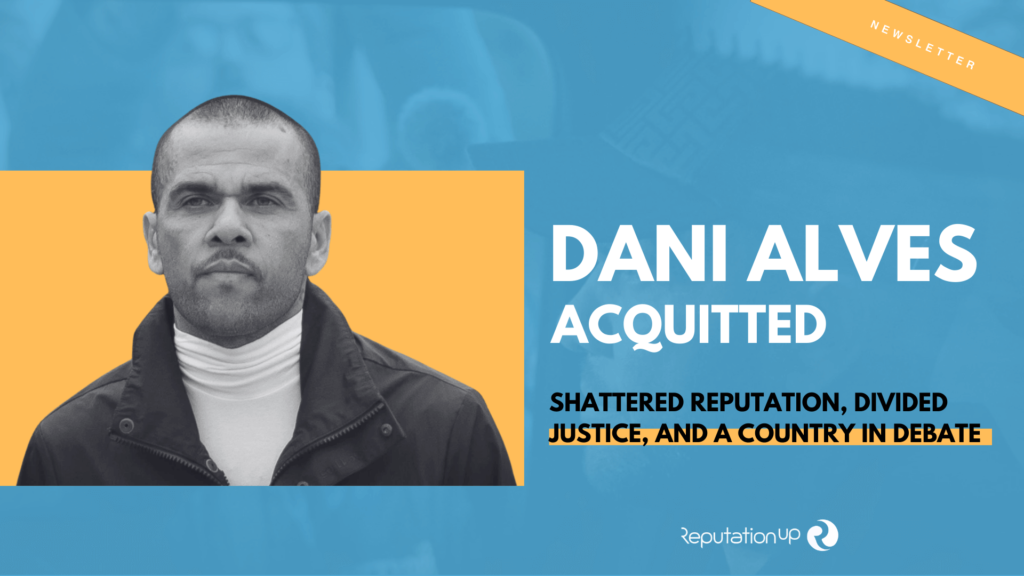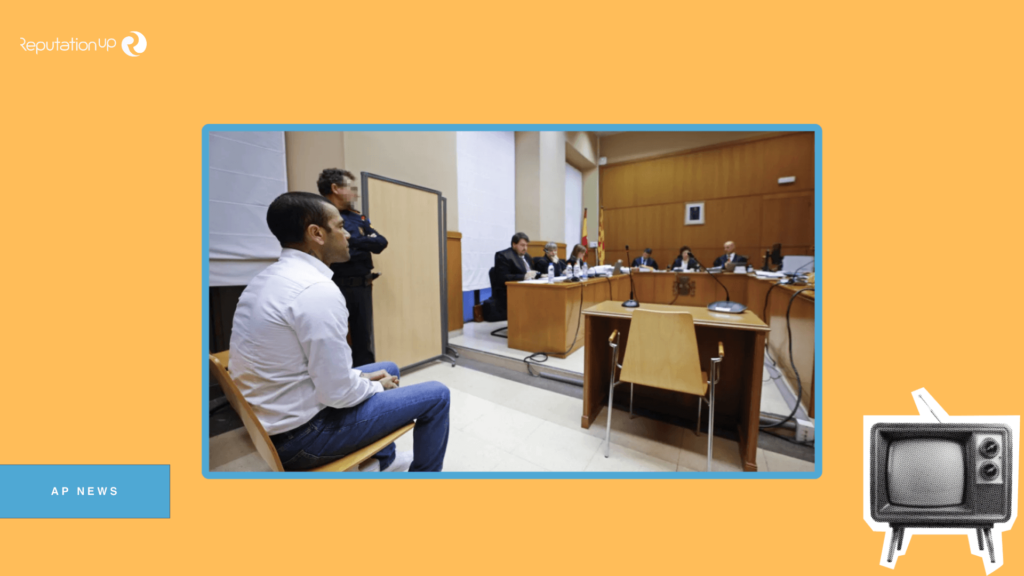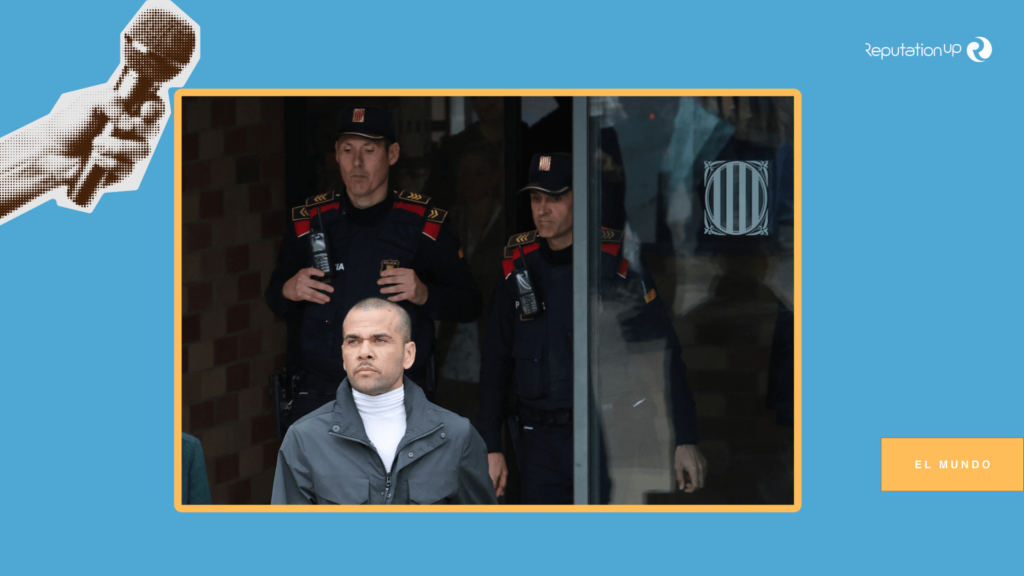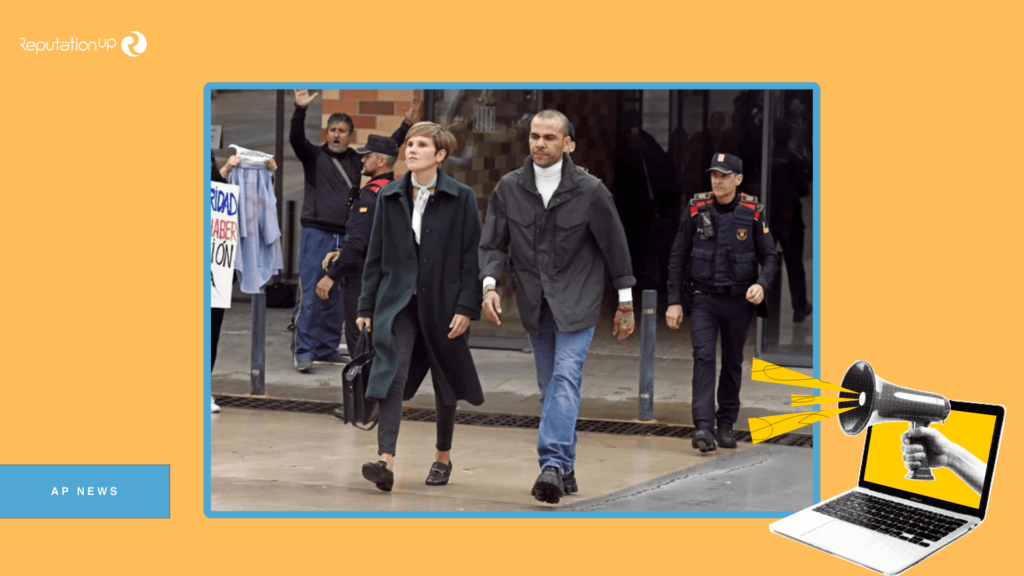Can an acquittal restore a reputation? What does the verdict freeing a high-profile figure like Dani Alves mean for Spanish justice?

On March 28, the High Court of Justice of Catalonia (TSJC) acquitted former Brazilian soccer player Dani Alves, overturning the four-and-a-half-year prison sentence imposed on him by the Barcelona Court of Appeals for sexual assault.
The ruling—unanimous and appealable to the Supreme Court—states that there is insufficient evidence to declare her guilty , and that the complainant’s testimony does not meet the standard of reliability required in a criminal trial.
A judicial decision that has shaken not only Spain, but also international media, social networks, and social groups.
Are we witnessing a victory for the presumption of innocence or a legal regression ? Is this a second chance for the former Brazilian Barça player or yet another breach in the system’s credibility?
A chronology of lights, shadows and reputation at stake
It all began on a night out in December 2022. A young woman reported being sexually assaulted in the restroom of a Barcelona nightclub. The protocol was quickly activated: Alves was arrested , remanded in custody, and lost his contract with Los Pumas de México.
For more than a year, the former soccer player lived behind bars, under media pressure and under the shadow of an accusation that not only affected his freedom but also his public image. He testified on up to four occasions , with conflicting accounts.

The case progressed with medical examinations, DNA reports, recordings, and behavioral analysis, until he was convicted in February 2024. However, just a month later, he was released on bail after posting €1 million.
And finally, in March 2025, the Supreme Court of Justice overturned the conviction , finding that there was no evidence to justify a prison sentence.
What the ruling says (and doesn’t say)
The ruling of the High Court of Justice of Catalonia does not categorically deny that the events described by the complainant could have occurred , but concludes that the threshold of certainty required for a criminal conviction has not been met.
This statement is based on the principle of presumption of innocence , which can only be rebutted by solid, clear and consistent evidence.
The court finds that the victim’s account falls short of the required standard, calling it “unreliable” due to multiple internal and external contradictions. For example, the young woman claimed to have felt intimidated by the soccer player’s behavior, but the security camera footage —one of the key elements in the case—shows a fluid, seemingly consensual interaction with no obvious signs of discomfort.
This discrepancy seriously weakened the credibility of the testimony.
Explanation for the knee injury —which, according to the complainant, occurred when she was forced to kneel— is questionable. Medical experts indicated that the wound was compatible with multiple scenarios and that it could not be definitively confirmed that it was the result of an assault.
Another point of contention was the DNA evidence. The defendant’s smegma was found in the complainant’s mouth, confirming that fellatio had taken place. However, the complainant had denied such a practice, and this contradiction was interpreted as further undermining her story.
The ruling recalls—following the doctrine of the Supreme Court—that in cases of sexual crimes a testimony, however coherent it may be , is not enough if it is not accompanied by peripheral elements that corroborate it.
The lack of fingerprints on the sink—where the victim said the penetration occurred—versus the presence of fingerprints on the toilet, as the defendant claimed, tipped the evidentiary balance toward reasonable doubt.

Dani Alves’ reputation: an acquittal that doesn’t erase the stigma?
Although legally acquitted , Dani Alves’ digital reputation has suffered a blow from which it will not be easy to recover. Pretrial detention, a media trial, breach of contract, and constant speculation have profoundly eroded his public image.
Today, despite the acquittal, he remains a controversial figure. Managing his image from now on will depend on a delicate strategy: transparency, discretion, and—possibly—staying out of the spotlight. His case is already a clear example of this. reputational damage.
But his personal story now adds a new, unexpected chapter.
From trial to counteroffensive: compensation, lawsuits, and a new legal front
The former soccer player and his legal team are preparing actions aimed at compensating for what they consider irreparable damage to his public image and fundamental rights.
The first target is his former club, Pumas de México, which fired him after learning of his pretrial detention. Alves plans a civil lawsuit for moral damages, seeking compensation of nearly $40 million , in addition to defamation claims and a labor lawsuit for wrongful dismissal and lost wages.
But the chapter doesn’t end in Mexico. In Spain, the former player is considering invoking Article 294 of the Organic Law of the Judiciary , which establishes the right to compensation for those who have spent time in pretrial detention and have subsequently been acquitted due to the non-existence of the alleged crime.
In his case, 437 days in prison would entitle him to claim compensation ranging from 7,400 to 22,700 euros , depending on the personal, social, and family consequences proven.
These legal maneuvers, far from being symbolic, seek to redefine the narrative surrounding Alves, who went from being accused to being a plaintiff.
Although the Supreme Court has yet to rule on the Prosecutor’s Office’s appeal, the Brazilian is preparing not only to close a legal case, but also to rebuild—or reclaim—an online reputation eroded by one of the most high-profile cases of the last decade.

The most unexpected twist: from prison to the announcement of a child
A few days after the TSJC’s acquittal was announced, Joana Sanz , Alves’ wife, surprised the public with the announcement of her pregnancy.
In a post on her social media, the model revealed that she is expecting a child conceived from her last frozen embryo , after years of fertility treatments , three miscarriages, tubal surgery, and a diagnosis of endometriosis.

The announcement not only dispelled months of speculation about the status of her relationship with the footballer, but also brought a more human dimension to the case.
However, the news also generated criticism. Many recalled that Alves had admitted to lying to his wife about that night to hide his infidelity. Can a pregnancy be a symbol of reconciliation amid the country’s most high-profile trial?
Joana Sanz’s figure has moved from discretion to occupy a new public space, generating both empathy and debate. For some, the pregnancy represents a new stage and a rebirth. For others, it represents a wound that remains open in the context of an unfinished legal process.
Spain before the world: an example of guaranteed justice or a social setback?
The acquittal of Dani Alves has generated two opposing interpretations internationally.
On the one hand, it presents itself as a rigorous judicial system that protects individual rights and demands solid evidence before convicting. On the other hand, there is a perception that victims are left unprotected and that there is a risk of backsliding after years of fighting for women’s rights.
Feminist groups warn that this decision could send a discouraging message to future complainants. In contrast, legal experts and Personal reputation management insists that the principle of innocence cannot be lost, no matter how complex the cases.
And now what?
The Prosecutor’s Office has announced that it will appeal the sentence to the Supreme Court, although the chances of overturning it are low. Meanwhile, Alves has regained his full freedom : he no longer has to appear in court and can leave the country whenever he wishes.
But beyond the judicial aspect, the case raises fundamental questions about the public administration of justice, the credibility of the system, and the way a society builds or destroys reputations in real time.
For experts in crisis management , this is a paradigmatic case that combines crime, reasonable doubt and social polarization.
And what do you think?
- Can someone clear their reputation after such a high-profile trial, even after being acquitted?
- Should a complainant’s testimony be enough to convict a person of sexual assault?
- Was the acquittal fair ?
- How does this impact trust in the Spanish justice system ?
Leave us your opinion. Because this story doesn’t end with a verdict: it continues to resonate in the media, on social media, and in the collective conscience of a society still seeking justice, truth, and guarantees for all. 🗣️

